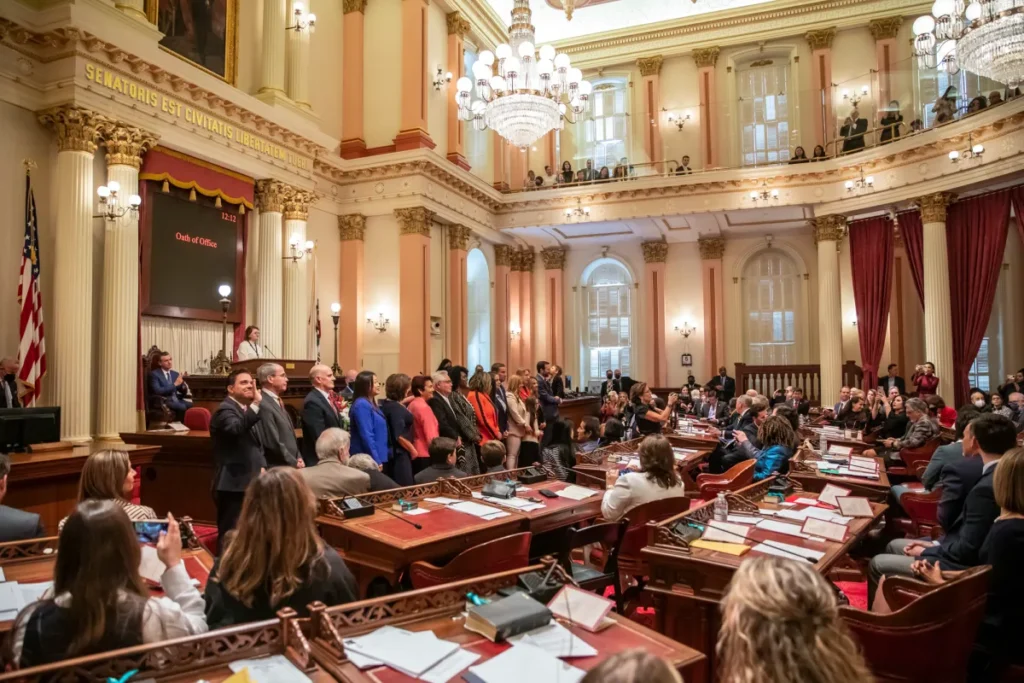California legislators debate state-imposed bargaining for fast-food workers

For the second legislative session in a row, California lawmakers are considering a radical plan to allow the state to negotiate on behalf of all fast-food employees in the Golden State.
The Fast Food Accountability and Standards Recovery Act, or FAST Recovery Act, seeks to create a state-appointed 11-member council with the power to establish minimum standards over pay, work conditions and working hours for the fast-food industry statewide.
Empowering workers or government overreach?
The bill’s proponents say only 3% of the nation’s fast-food workers belong to unions and that these workers lack the power to negotiate salaries due to high worker turnover, inexperience and fear of reprisal. Supporters say the FAST Recovery Act is necessary to address the inequality these workers face.
The measure would not only set industry-wide standards but hold both franchisees and franchisors responsible for compliance. Business groups and other opponents say the government should stay out of private negotiations between companies and their workers. The California Restaurant Association says it would drive fast-food chains out of the state due to massive cost increases for franchisors and franchisees.
Opponents argue that California already has some of the strictest labor laws in the country, including the $15 per hour minimum wage. They say the free market dictates when adjustments are necessary, adding that many fast-food restaurants have already raised hourly wages above $15 in response to worker shortages that began during the pandemic.
Franchisees strive to maintain autonomy
During some of the 2021 committee hearings, several franchisees testified against the measure saying they fear increased regulations will strip them of their identities as business owners, making them little more than employees of large corporations (that is, their franchisors). They say the bill would fundamentally change the franchise model and make them less independent.
Even the bill’s sponsor says it is not the best solution and that the government should not replace a private-sector approach to negotiating pay and conditions for workers. But she believes that the FAST Recovery Act is necessary while restaurants continue to fight efforts to unionize fast-food employees.
On Jan. 31, The union-backed measure – Assembly Bill 257 – narrowly passed the California State Assembly and now awaits action in the state senate. During the 2021 session, the bill fell short in the state Assembly by three votes. If approved this time around, the legislation would be the first of its kind in the country and analysts say it could spur other states to establish their own legislation to address the worker inequality in the fast-food industry
